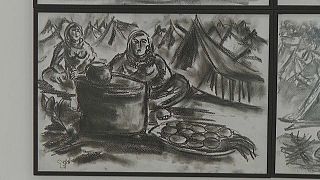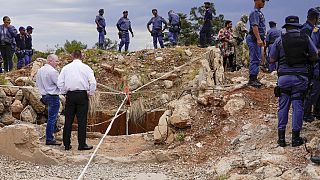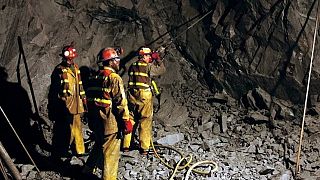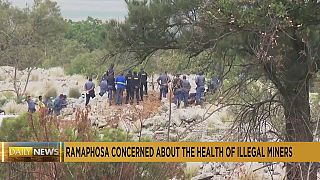South Africa
Violent clients, police harassment, and stigma are just some of the main reasons sex workers and the NGOs that collaborate with them are fighting for the South African government to decriminalize the trade.
Sex work has been criminalized in South Africa since 1957 under the Sexual Offences Act, which bans prostitution, brothels, and criminalizes anyone who lives off the proceeds of sex work. More restrictive legislation was introduced in 2007 which criminalized the buying of sex.
A report by Human Rights Watch released this month found that criminalization drives sex workers underground where they are often forced to work in unsafe conditions, harassed by the police, and are unable to report rape, assault, or other forms of criminal activity for fear of being prosecuted themselves.
However, in a country with a 29% unemployment rate and few economic opportunities for those without tertiary qualifications, criminalization has not deterred people from turning to sex work to support their families.
Mbali Khumalo (name changed to protect her identity) is a sex worker and member of a local sex workers movement.
“Sex work has been here since my mother, since their mothers and their grandmothers and it’s not gonna change. This industry has been here before us, before you, so I want those who are non-sex workers to just stop judging us. We chose to do this. It’s my body. You can’t tell me what to do.” Khumalo said.
Sex workers argue that full decriminalization, which would legalese the buying and selling of sex and the establishment of brothels, is the only option that would keep them safe as it would allow them to report violence to the police without fear.
“Our research found a number of very compelling reasons why sex work should be decriminalized. One is that criminalization is inherently against human rights. My right, your right to control your own body, to do what you want if it doesn’t harm anyone else. Your right to privacy, your right to have sex with who you want to as a consenting adult so that’s the first reason. The second reason is that criminalization makes sex work more dangerous, because sex workers can’t report freely to the police because they are forced to work in the darkness, they are forced to work in a hidden way,” said Skye Wheeler, a researcher with the women’s rights division of Human Rights Watch.
South Africa is divided on the issue, with some local civic organizations speaking out against the decriminalization of sex work.
Katlego Rasebitse is the media liaison officer for the Sisonke sex workers advocacy group.
“Decriminalization it will only mean one thing, that you know, there will be an impact on then the law reform in South Africa. Which is hugely debatable now because of, you’ve got, you know, other anti-prostitution organizations that are out there. But, basically it will mean that I would be able to walk into the SAPS shop and say, you know officer, as a male I got raped,” says Rasebitse, who is also a sex worker.
Earlier this year, President Cyril Ramaphosa said the government would consider decriminalizing sex work. The Department of Health has already rolled out programs aimed at providing healthcare including condoms, HIV testing, and pre-exposure prophylactics (PrEP) to sex workers. However, sex workers have said that the stigma they face in their communities can make access difficult at local clinics.











02:18
Highly-anticipated Wicked makes its cinema debut in South Africa
01:26
Tens of thousands rally in New Zealand in support of Māori rights
01:00
Chidimma Adetshina crowned Miss Universe Africa and Oceania
01:10
South African beauty queen withdraws from Miss Universe pageant
01:38
Police spokesperson calls rescue attempt of trapped miners ‘unsafe’
00:45
What next for Safa president Danny Jordaan?